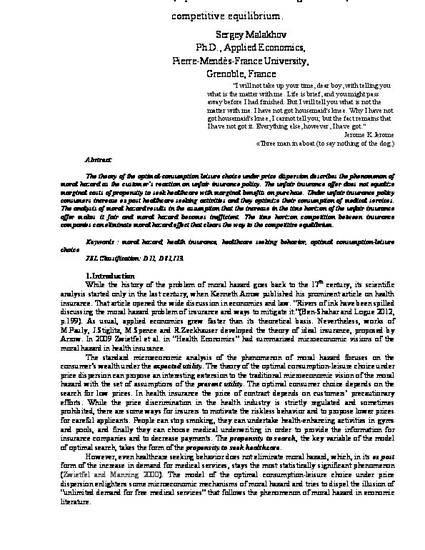
Article
Moral hazard, optimal healthcare-seeking behavior, and competitive equilibrium.
Expert Journal of economics
(2017)
Abstract
The theory of the optimal-consumption leisure choice under price dispersion describes the phenomenon of moral hazard as the customer’s reaction on unfair insurance policy. The unfair insurance offer does not equalize marginal costs of propensity to seek healthcare with marginal benefits on purchase. Under unfair insurance policy consumers increase ex post healthcare seeking activities and they optimize their consumption of medical services. The analysis of moral hazard results in the assumption that the increase in the time horizon of the unfair insurance offer makes it fair and moral hazard becomes inefficient. The time horizon competition between insurance companies can eliminate moral hazard effect that clears the way to the competitive equilibrium.
Keywords
- moral hazard,
- health insurance,
- healthcare seeking behavior,
- optimal consumption-leisure choice
Disciplines
Publication Date
Fall October 28, 2017
Publisher Statement
The author gas a copyright of this article
Citation Information
Sergey V. Malakhov. "Moral hazard, optimal healthcare-seeking behavior, and competitive equilibrium." Expert Journal of economics Vol. 5 Iss. 2 (2017) p. 71 - 79 ISSN: 2359-7704 Available at: http://works.bepress.com/sergey_malakhov/15/
Creative Commons license

This work is licensed under a Creative Commons CC_BY International License.
